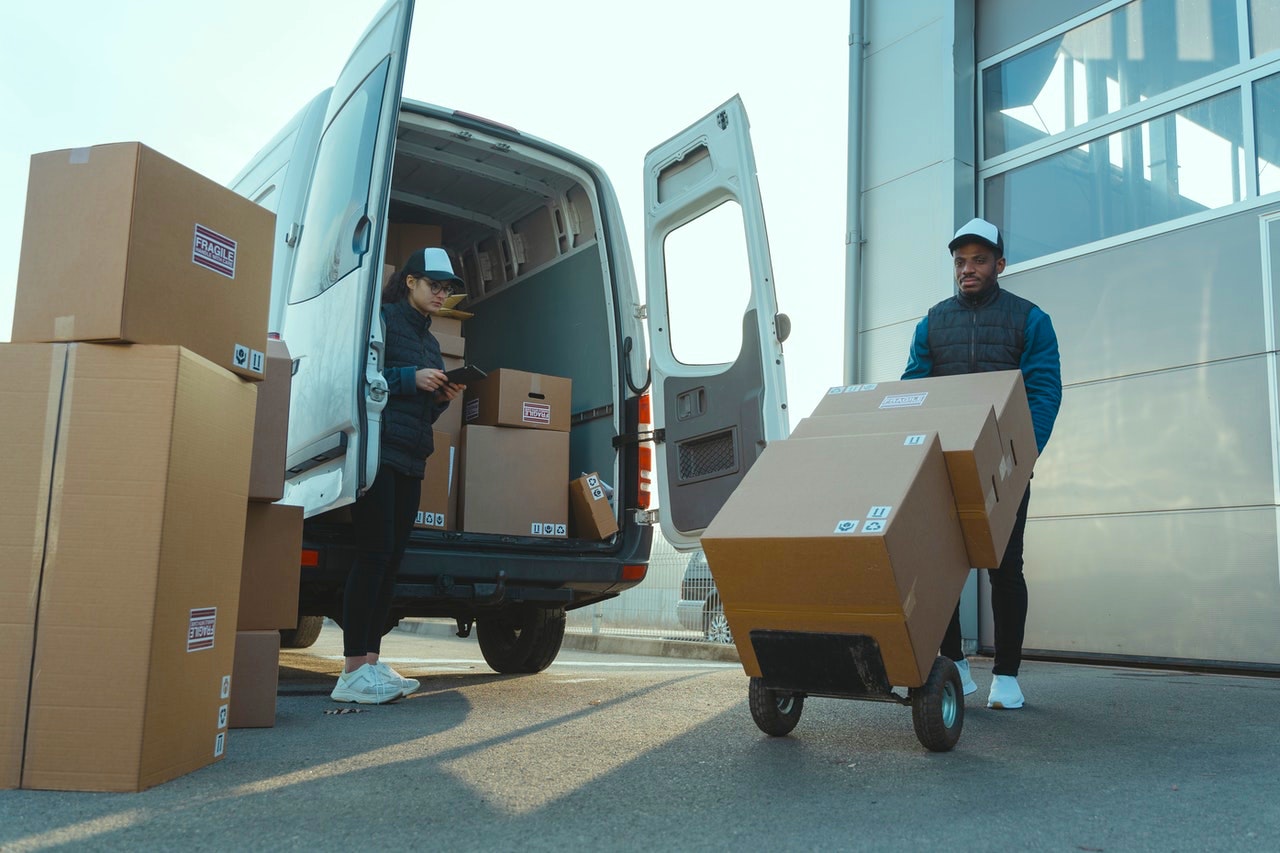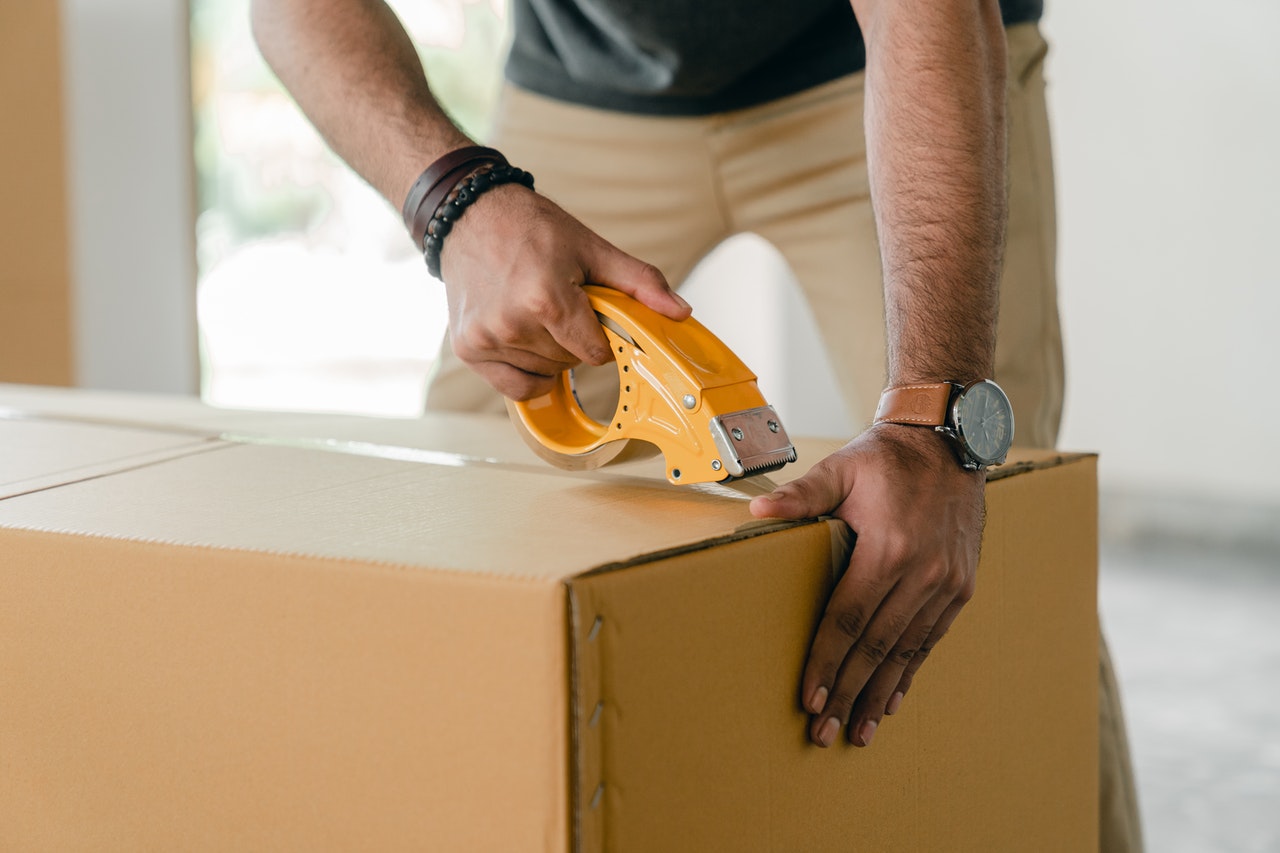
Numerous on-demand storage companies have sprung up in recent years. They all promise an easy solution to solve the problem of not having enough home storage space.
The business model of these companies is a creative evolution of the traditional self-storage concept. Instead of someone taking all of their extra stuff to another location for storage, these companies come right to the customer to pick it up.
On-demand storage is also known as “pickup storage” and “valet storage”.
One of the common selling points of these companies is how convenient their services are for people to use. The longer you look at how these businesses work, however, it becomes quite evident that it just doesn’t make any practical or financial sense to use on-demand storage companies.
Why is there more demand for on-demand storage?
It’s not surprising that this type of service has gained traction in the home storage marketplace. A lot of us simply have too much stuff and don’t spend enough time paring down the number of things we own.
That makes what storage companies offer look a lot more attractive in desperate times when clutter has overwhelmed a household.
These eye-opening statistics shed some light on how our homes are organized:
- Having a lack of storage space was the number one pet peeve of homeowners. (HSH.com survey)
- Disorganization (not lack of space) causes 80% of household clutter. (Soap and Detergent Association study)
- Having an untidy home was the fifth most common stress trigger for homeowners. (Huffington Post survey)
- 25% of people with 2-car garages don’t park in them at all due to clutter. (U.S. Dept. of Energy study)
- 61% of women who have a hard time finding anything in their closet end up buying new clothes. (OnePoll survey)
- Only 20% of the things we own are actually used. (LexisNexis study)
- 9% of Americans rent storage space, even though 65% of those homeowners have a garage. (Self Storage Association survey)
The very fact that on-demand storage companies exist and that people are using them is a reflection of the consumer culture we live in. The rise of e-commerce over the past 20 years has only added to the problem of our homes being more overstuffed than ever.
How does on-demand storage work?
Here’s how on-demand storage companies work:
- The customer contacts the company and tells them how much of their stuff needs to be stored at the company’s warehouse.
- A time is scheduled for the company’s empty lockable storage containers to be dropped off at the customer’s home. Some pickup storage services will allow customers to use their own storage boxes or bins and may offer packing help as well (the latter costs extra, naturally).
- When the storage containers are filled, a pickup time is arranged.
- All items being stored are inventoried and photographed before being shipped to the storage warehouse. Monthly fees are charged to the customer based on the amount of storage space they use.
- Whenever the customer needs anything from their stored inventory, the company delivers it to them upon request for a fee.
Most customers will use a self-service phone app or web portal to check and manage their stored inventory and arrange pickup and drop-off times.
If all of that extra time, work, and expense just to store your own belongings seems impractical and, quite frankly, downright silly, you’re beginning to see why hiring one of these companies is usually a bad idea.
Using a storage company on a short-term basis could be practical if you found yourself in one of the following difficult situations:
- if you’re in a bind with a sudden job relocation to another city or country
- a job loss that forces you to downsize
- if your home is undergoing a major long-term remodel
- a change in your living situation (like a separation, divorce, or end of a live-in relationship) that requires you to move
Otherwise, there’s no reason anyone should be wasting their hard-earned money on this type of service. Let’s take a closer look at why you shouldn’t use on-demand storage services.
1. “Out of sight, out of mind” isn’t a storage solution
If a home can’t fit everything a family owns, the home is too small or the occupants own more things than they need (or both). In most cases, it’s the latter.
The “kicking the can down the road” approach to dealing with clutter by just storing it remotely doesn’t solve anyone’s organization problems. “Out of sight, out of mind” simply isn’t a storage solution.
The biggest reason people avoid getting organized is the time it will require to get the job done. Somehow, they conveniently forget just how much time we waste from being disorganized. It makes no sense.
The only way to solve a storage problem is to address the root cause of the issue and put in some time and effort to declutter occasionally. Hiring a storage company to house the stuff their home should be storing only encourages someone to keep buying more than they need.
One day, all of that stored stuff will need to be dealt with anyway.

Instead of shipping things you can’t find room for in your home to another location, just take the time to declutter.
2. On-demand storage drains your finances
That “one day” when someone finally gets around to dealing with their stored items is what these companies count on to make their money. It’s in these companies’ best financial interests for their customers to forget about their belongings or procrastinate on getting rid of them.
Derek Naylor, a former president of Storage Marketing Solutions (a self-storage industry marketing and advertising agency) told The New York Times, “Human laziness has always been a big friend of self-storage operators.”
This extra monthly expense naturally adds up if you have things stored for a long time. You’ll find plenty of cautionary tales online like this one from people filled with regret about using storage companies. In many cases, their story is the same: a plan to store some things on a temporary basis turns into a long-term period of using remote storage, which results in thousands of wasted dollars.
The pickup storage service model only adds another expense on top of the monthly storage fee when someone needs to have things delivered occasionally from their storage warehouse. Delivery fees varied anywhere from $15 to $35 for the various on-demand storage companies we looked at.
Read the fine print
Then there are the extra charges you need to pay close attention to in the service contract you sign. They may not exactly be hidden, but they’re certainly not easily identified in all of that fine print, either. Here are some examples of extra fees you can face:
- heavy item charges for delivering bulky items that require more than one person to handle
- mandatory insurance fees
- penalty surcharges if you store less than the company’s minimum storage requirement
- a one-time administrative fee when you open an account
- hefty late fees if a monthly payment is missed or late
3. Why pay someone to store your junk?
Junk is defined as “something of little meaning, worth, or significance”. If something is so inconsequential in your life that you don’t even need to keep it under your own roof, chances are that it’s junk. If you’ve ever watched an episode of Storage Wars, you know that most of the contents kept in storage units is junk.
Feelings of nostalgia make it difficult for many people to part with their belongings. Others are reluctant to throw things away because it feels wasteful.
But as Ann Gambrell (founder of the National Association of Professional Organizers) explained to Consumer Reports about why people waste money on storage fees, “It’s typically all about procrastination. People end up spending money because they can’t make a decision.”
Holding onto junk and letting it take up space in a home limits the functionality of a living space. That’s not cost-effective. And it’s even less cost-effective for someone to ship away their junk and pay someone to store it.
Don’t waste your money on fees to store things you’ll end up selling or throwing away eventually anyway. There are two huge upsides of downsizing the number of things you own: you’ll save a lot of money and feel great after liberating yourself from the clutter that’s caused you stress for years.
4. Investing in home storage upgrades is a lot smarter
It’s ironic that the excess clutter that prompts someone to try and create more storage space in their home also makes it harder to identify where those potential storage spaces are. It’s like trying to find a parking spot in a crowded parking lot – finding that open space is much harder when everything is so congested.
The average homeowner who looks around their house or condo for more space to store their belongings also doesn’t have the experience of a home organization design pro. Companies like Organized Interiors, who specialize in storage and organization solutions, can leverage a home’s underutilized spaces for improved functionality.
Instead of falling into the bottomless pit of monthly storage fee expenses, it’s a lot smarter to invest your money in home storage upgrades that also add value to your home.
Skilled design professionals can improve existing home storage areas and find new storage spaces that most people wouldn’t have considered. Here are some examples:
- a closet makeover that maximizes the storage space for clothing and accessories
- converting an unused attic space into additional storage or living space
- making better use of a spare room and converting it into a guest room, home office, walk-in closet, or hobby room
- optimizing the storage capabilities of the garage
- using dual-purpose furniture like storage beds, built-in wall units, and seating with hidden storage

Instead of wasting money every month on storage fees, invest in home storage upgrades. This custom cabinetry featuring a storage bed maximizes a bedroom’s storage space.
5. On-demand storage isn’t as convenient as it may seem
The “convenience” these valet storage companies promote makes rather selective use of that word. Is it more convenient for someone to have all of their extra stuff picked up and shipped off somewhere else so they don’t have to declutter and make more storage room in their home? Sure, that saves them time now.
It’s not so convenient, however, on a long-term basis when they need access to anything that is stored remotely. Then they’re dealing with the busywork of arranging a delivery time and waiting for the delivery to happen.
There’s nothing convenient about anyone having less access to their own belongings and getting charged a fee to have them delivered to their home. All of the on-demand storage companies we looked at don’t even have an option that allows customers to pick up their items from the storage facility when needed, even for a lower fee.
Even in a cluttered home, someone can probably find anything (even a misplaced item) in less time than it would take to arrange and wait for a valet storage company delivery.
6. Not all storage warehouses are safe and secure
All storage companies promote the fact that customers can enjoy the peace of mind of knowing that their belongings are being stored in a safe, secure storage facility.
However, we all know that there are plenty of shady companies out there who will promise one thing and actually cut corners with how they operate.
Anyone entrusting a company to store their belongings should be asking a number of questions about the storage warehouse where their things are being kept. This includes asking:
- does the storage facility have 24/7 security personnel and monitored video surveillance?
- how safe is the neighbourhood the facility is located in?
- are strict pest control measures being used?
- how carefully monitored is the warehouse’s climate control?
7. Storage companies avoid taking responsibility for lost and damaged items
Anyone considering using a storage company doesn’t only need to do their homework on how secure their stored belongings will be, they also need to get detailed information about how liable the company is in the event of damage or theft of their property.
Traditionally, storage companies will do everything they can to avoid having to pay you the full amount to replace damaged or stolen items.
Look at the terms and conditions page on the site of any storage company. They’re guaranteed to be the longest page on the site and filled with legalese that seems to absolve the company of virtually any responsibility for items that are stored with them…unless you have a protection plan. And even if you do have a protection plan, the level of coverage you get isn’t very impressive.
Here is a sampling from a couple of storage companies about what they won’t cover unless you have a protection plan:
- loss or damage incurred in transit or during loading or unloading
- loss or damage resulting from unknown or mysterious causes
- damage caused by moths, vermin or other insects, rust, fire, water, changes in temperature, fumigation, or deterioration
- loss or damage resulting from theft
And that’s only a fraction of what they list. Some companies protect themselves from any liability to such a high degree that they even list acts of war and nuclear accidents as events for which they’re not responsible for damage to property stored on their premises. Talk about covering all of your bases!
8. On-demand storage is bad for the planet
Using on-demand storage companies isn’t eco-friendly in a couple of different ways.
There are thousands of storage warehouses occupying billions of square footage across Canada and the U.S. That massive amount of space needs to be lit and climate-controlled, which leaves a large carbon footprint.
Valet storage companies are also part of the growing business movement that provides on-demand services to consumers who crave convenience. Nowadays, everything from Amazon packages to fast food to groceries to pet grooming services can come right to our front doors.
The trade-off for all of this convenience, unfortunately, is more traffic on the roads (including on-demand storage vehicles) and therefore more vehicle emissions.

Traffic congestion in the GTA is already bad enough. More on-demand storage company vehicles on the roads only adds to the problem and increases vehicle emissions.
9. There are restrictions on what you can store
It makes sense that storage companies would have some restrictions on what you can store in their facilities, including things like illegal items, perishable goods, and materials that are combustible, hazardous, and toxic.
Once again, you need to really read the fine print in their terms and conditions to ensure you’re complying with their storage guidelines and not breaking any rules that could result in a hefty fine. A number of things on the restricted items lists from a few different companies surprised us. Here are some examples of what can’t be stored:
- heavy items like a piano, pool table, or large grill
- vehicle tires
- boxes weighing more than 70 pounds
- some types of exercise equipment
Most storage companies will only store fragile goods under certain conditions, if at all. For example, furniture that incorporates glass and furniture made from particleboard needs to be disassembled. Electronics like a TV or computer need to be packed in their original boxes or in one of the company’s special boxes.
Even after complying with these rules, customers typically still have to sign a fragile items waiver that takes the storage company off the hook for any responsibility if the items are damaged, even if the customer bought the protection plan.
Make more space for your belongings at home, not a storage facility
By now it should be quite clear that hiring on-demand storage companies isn’t worth the hassle and expense.
Talk to Organized Interiors about how we can improve the storage functionality in your home. We offer more practical and cost-effective ways to solve your home organization challenges than storing your belongings in a remote location.
Schedule a free design consultation with us today.
Please share this post if you found it useful.
